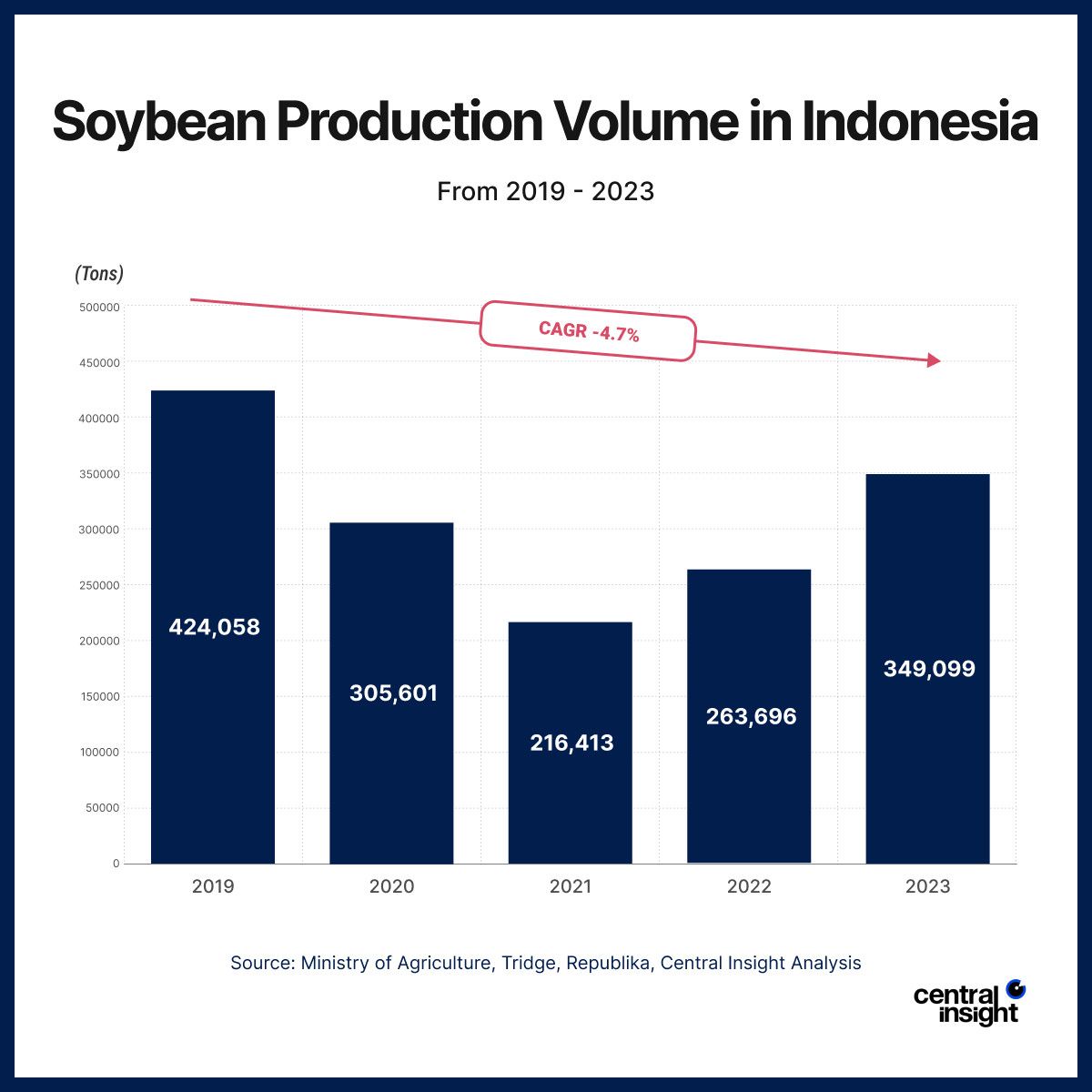Soybeans play a vital role in Indonesia’s food system, serving as the main ingredient in two of the nation’s most beloved staples: tempeh and tofu. These protein-rich foods are not only cultural icons but also daily necessities for millions of households. Yet behind their ubiquity lies a pressing challenge: Indonesia depends heavily on imported soybeans to meet domestic demand.
Declining Imports but Persistent Dependency
Data from the Ministry of Agriculture shows that Indonesia’s soybean imports decreased from 2.67 million tons in 2019 to 2.27 million tons in 2023, a compound annual growth rate (CAGR) of -3.9%. On the surface, this suggests progress toward reducing reliance on foreign supply.
However, the reality is more complex. The decline was not driven by stronger domestic production but by rising global soybean prices, which made imports more expensive. In fact, imports still accounted for nearly all of Indonesia’s demand, underscoring a structural dependency.
Why Local Production Falls Short
Between 2019 and 2023, Indonesia’s domestic soybean production fell at a CAGR of -4.7%.

Production dropped from 424,000 tons in 2019 to just 216,000 tons in 2021 during the pandemic, covering barely 7% of total demand. Although output rebounded to 349,000 tons in 2023, it remains far below what is needed.
Several factors explain this chronic underperformance:
- Fragmented farmland: Soybeans are typically grown on small plots, often less than one hectare, limiting economies of scale.
- Traditional farming practices: Reliance on manual labor and outdated cultivation methods reduces yields.
- Low-quality seeds: Many farmers still use seeds with low yield potential, which cannot compete with high-yield varieties used in the U.S. or Brazil.
- Pest and disease challenges: Limited access to modern pest control techniques leads to frequent crop losses.
Combined, these issues result in lower productivity and inconsistent quality, making local soybeans less appealing for large-scale tofu and tempeh producers.
The Way Forward
Can Indonesia realistically reduce its dependence on imports? Experts suggest a multipronged approach:
- Investing in agritech: Mechanization, irrigation systems, and precision farming can increase yields.
- Developing better seeds: Research into high-yield, pest-resistant varieties suited to Indonesian conditions is essential.
- Strengthening farmer cooperatives: Consolidating fragmented plots could help achieve economies of scale.
- Balancing imports and local production: While reducing dependency is important, maintaining stable import channels ensures food security in the short term.
Indonesia’s reliance on imported soybeans reflects broader challenges in the country’s agricultural sector: outdated practices, low productivity, and heavy dependence on global markets. While local production has potential, it requires serious investment and policy commitment to close the quality and volume gap. Until then, Indonesia’s iconic tempeh and tofu will remain tied to global supply chains.








